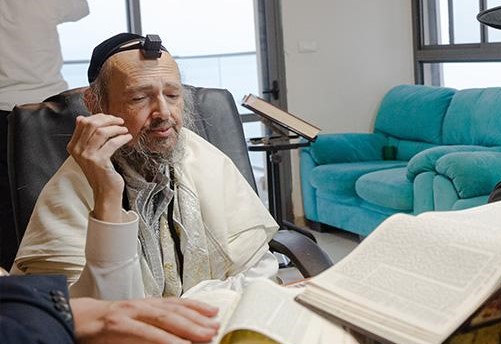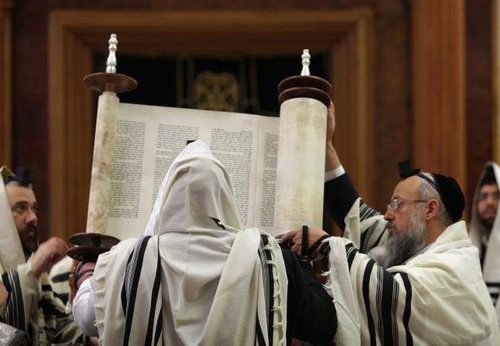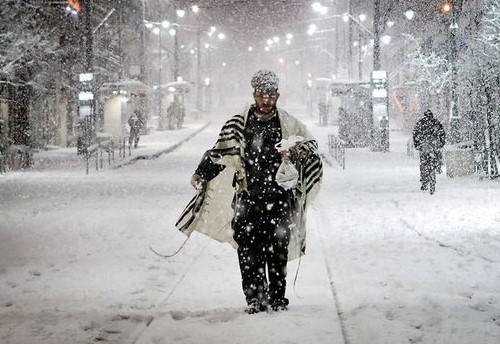Adapted from the writings of Dayan Yitzhak Grossman July 4, 2024

Ra’isi Rasha Aritz:[1] The Persian Gulf between Celebrants and Mourners of a Tyrant’s Demise
Adapted from the writings of Dayan Yitzhak Grossman
May 30, 2024
Israel Hayom reports:
Following the initial reports of Iran’s President Ebrahim Raisi and his foreign minister’s helicopter crash and up until the official declaration of their death, despite the supreme leader Ali Khamenei’s call for prayer and mourning, Iranians are celebrating worldwide.
Civilians are seen firing celebratory fireworks in Tehran in recent footage, with one of them saying “Let’s celebrate the good news of Ebrahim Raisi’s chopper crash,” according to Iran International. Many more videos show Iranians cheering in response to the latest news, as well as many social media posts from across the world, celebrating using the hashtag #IranIsHappy…
Iranian-American journalist, author, and women’s rights activist Masih Alinejad has also expressed her glee, declaring today “World Helicopter Day.” She added that this is “the only crash in history where everyone is worried if someone survived,” alluding to the Iranian regime’s brutal suppression of dissent and extreme violence towards women…
Expressing their immense joy, a group of Iranians was seen dancing and waving the Iranian and Israeli flags in front of the Iranian Embassy in London on Sunday, as news first emerged about the crash. Videos of victims of the regime’s brutality dancing and cheering appear all over social media, one of them by Mersedeh Shahinkar, who was shot by a security agent while protesting against the death of Mahsa Jina Amini—an Iranian woman who refused to wear a mandatory hijab—causing her to lose one of her eyes, and Sima Moradbeigi, a young mother who was shot by an IRGC guard during a protest, causing her to lose mobility in her right arm.[2]
The United Nations, on the other hand, is mourning Raisi’s death:
On Tuesday, 21 May 2024, the UN Flag will be lowered to half-mast as a mark of respect for the passing of His Excellency Mr. Seyyed Ebrahim Raisi, President of the Islamic Republic of Iran. All offices and duty stations are encouraged to lower their flags on this occasion.[3]
R’ Yehudah Hechasid presumably had something like this attitude of the United Nations in mind when he wrote:
Anyone who is pained by the pain of wicked people who were cruel, will be punished.[4]
He proceeds to cite a pasuk in Mishlei (11:10) that explicitly endorses celebrating the death of the wicked: “And when the wicked perish there is glad song.”
The Gemara mentions a historical example of this:
“And the joyous proclamation spread throughout the camp (Melachim I 22:36).” (“The” joyous proclamation implies that this joy had been foretold. Where?) R’ Acha bar Chanina said, “And when the wicked perish there is glad song” (Mishlei 11:10). This foretold that when the wicked Achav ben Amri would perish, there would be joy.[5]
Elsewhere, however, Mishlei admonishes us against rejoicing in the downfall of our enemies:
When your enemy falls, do not rejoice, and when he stumbles, let your heart not be joyous, lest Hashem see and it be displeasing in His eyes, and He turn His anger from him (to you).[6]
The apparent contradiction between the two psukim in Mishlei is raised by a Midrash, the Tana Devei Eliyahu Rabah, which concludes that it is indeed appropriate to rejoice in the downfall of the wicked, and explains how the latter psukim do not contradict this principle.[7]
Another resolution to the contradiction may emerge from the following Gemara:
After Haman cut Mordechai’s hair, he dressed him in his royal garments. He said to Mordechai: Ascend the King’s horse and ride. Mordechai said to him: I am not able to ascend by myself, for my strength is weakened from the days of fasting. So Haman bent down, and Mordechai stepped up on Haman’s back and ascended the horse. As he was ascending, he kicked Haman. Haman asked him: Is it not written for you, “When your enemy falls, do not rejoice (Mishlei 24:17)?” Mordechai answered him: These words were stated concerning a Jewish enemy, but about you it is written, “And you shall tread upon their high places (Dvarim 33:29).”[8]
In light of Mordechai’s explanation, we can reconcile the two psukim in Mishlei: The admonition of “When your enemy falls, do not rejoice” refers to a Jewish enemy, and the declaration that “when the wicked perish there is glad song” refers to wicked non-Jews. This would seem, however, to contradict the previously cited Gemara’s application of the latter pasuk to Achav, a Jew, and as well as the application of that pasuk by the Mishnah itself to Jewish sinners.[9]
In any event, there are a number of sources in our mesorah that oppose the celebration of the downfall of even non-Jewish enemies. The continuation of the previously cited Gemara’s discussion of the pasuk “And when the wicked perish there is glad song” contains a famous expression of ambivalence about celebrating of the downfall of the wicked: “My handiwork is drowning in the sea, and you recite a song of praise before Me?!”
But does Hakadosh Baruch Hu rejoice at the downfall of the wicked? Is it not written: “As they go out before the army, and they say, ‘Give thanks to Hashem, for his kindness endures forever.’” And R’ Yonasan said: Why is the expression “for it is good” not mentioned in this praise (as it is in Tehillim)? Because Hakadosh Baruch Hu does not rejoice at the downfall of the wicked.
For R’ Shmuel bar Nachman said in the name of R’ Yonasan: What is the meaning of that which is written, “And one did not come near the other all night”? At that time (when the Egyptians were drowning), the ministering angels wanted to recite a song of praise before Hakadosh Baruch Hu. Hakadosh Baruch Hu said to them, “My handiwork is drowning in the sea, and you recite a song of praise before Me?!” (This proves that Hashem does not rejoice at the downfall of the wicked. Why, then, does the pasuk say, “And when the wicked perish there is glad song”)?
R’ Yosi bar Chanina said: He does not rejoice, but he causes others to rejoice…
We will not attempt here to precisely explain R’ Yosi ben Chanina’s distinction, but the Gemara does seem to be saying that we ought not to experience or express unbridled joy at the downfall of our enemies.[10]
The Shibalei Haleket cites the following Midrash:
All seven days of the Festival (Sukkos) we complete Hallel, but on Pesach we complete Hallel only on the first day and night. Why is this? Shmuel ben Abba says: “When your enemy falls, do not rejoice”—because the Egyptians were drowned then (on the seventh day of Pesach).[11]
A more elaborate version of this idea appears in another Midrash, the Psikta DeRav Kahana:
You find three instances of the term simcha written in the context of the Festival (Sukkos), and these are they: “You shall rejoice on your Festival,”[12] “and you shall be completely joyous,”[13] “and you shall rejoice before Hashem, your G-d, for a seven day period.”[14] But in the context of Pesach you do not find the term “joy” written even once. Why is this?…
Another explanation: Why is “joy” not written there? Because the Egyptians died then. And so you find that on all seven days of the Festival we read the Hallel, but on Pesach we only read the Hallel on the first day and night. Why is this? As Shmuel said, “When your enemy falls, do not rejoice.”[15]
The Maharil also cites this reason for not completing Hallel on Pesach after the first day—“for on the seventh day the Egyptians drowned, and Hakadosh Baruch Hu says: ‘My handiwork is drowning in the sea, and you recite a song of praise before Me?!’[16] But a note appearing a page earlier cites (apparently in the name of the author’s rebbi, R’ Avraham Kloizner) a custom rooted in the exact antithesis of this idea:
On the last days of Pesach, some say “the time of our joy (zman simchaseinu),” due to the joy of the drowning of the Egyptians in the sea.[17]
The note continues, however, to say that “in the days of Maharil, I did not hear any distinction (i.e., between the liturgies of the first and last days of Pesach).”
R’ Meir Simcha of Dvinsk also wholeheartedly embraces the idea that we do not celebrate the destruction of our enemies. He explains that unlike all other nations that establish holidays in commemoration of their victories over their enemies and the downfall of those enemies, the Jewish people does not do so, following the admonition of “When your enemy falls, do not rejoice.” All of our holidays, such as Pesach, Purim, and Chanukah, celebrate our material and spiritual salvation, rather than the downfall and destruction of our enemies. R’ Meir Simcha goes so far as to make the remarkable claim that Hashem commanded us to observe the seventh day of Pesach as a holiday when we were still in Mitzrayim, before He drowned the Egyptians in the sea,[18] lest people mistakenly construe the observance of that day as a celebration of their destruction.[19]
It has been noted,[20] however, that Rav Sa’adiah Gaon actually terms the seventh day of Pesach “the holiday of the extermination (chag hahashmadah).”[21] Additionally, Megillas Ta’anis records that the seventh day of Kislev and the second day of Shvat were holidays because they are, respectively, the anniversaries of the deaths of King Herod (Hurdus), who hated the Sages, and King Yanai, for “for there is joy before Hashem when the wicked are removed from the world.”[22]
Finally, some Acharonim suggest that the reason a bracha is not made on the mitzvah of leining Parshas Zachor is that we do not recite blessings upon (commemorations of) destruction.[23]
[1]Tehillim 37:35. “I have seen a wicked man powerful…”[2]Adi Nirman. Iranians worldwide celebrate after ‘Butcher’ Raisi dies. Israel Hayom. https://www.israelhayom.com/2024/05/20/iranians-celebrate-butcher-of-tehran-raisis-death-worldwide/.
[3]United Nations. Lowering of UN Flags to Half-Mast on Tuesday, 21 May.
[4]Sefer Chasidim end of siman 607.
[6]Mishlei 24:17.
[7]Tana Devei Eliyahu Rabah, end of perek 18.
[8]Megillah 16a. Cf. Pirkei DeRabi Eliezer perek 50.
[9]Sanhedrin 4:5. Cf. n. 16 of R’ Moshe Walter’s article cited below.
[10]See, e.g., the comments of the Maharil, R’ Meir Simcha of Dvinsk, and the Yafeh Laleiv cited below, which all invoke this Gemara in support of the idea that we do not celebrate the destruction of our enemies, or at least that we limit such celebration.
For a very different interpretation of this passage, however, see Torah Shleimah cheilek 14 p. 63 (#126); Yehoshua Rosenberg, Shiras Hayam: Ma’asei Yadai Tov’in Bayam Ve’atem Omrim Shirah?; and Yonasan Cohen, Parshas Beshalach: Mi Heim ‘Ma’asei Yadai Tov’in Bayam,’ Mida.
Cf. Ma’asei Yadai Tov’in Bayam Ve’atem Omrim Shirah? (Mechalkei Hamayim); Shalom Rosenberg, Shiras Hamalachim: Hahumanism Hateiologi Al Pi Chazal; Veshuv Al Shiras Hamalachim; Rabbi Dovid Henshke, Al Shum Mah Ne’elmu Hamalachim? Akdamus 6, Teves 5759, pp. 59-68; R’ Yaron Ben-David, Simcha Bemapalasan Shel Resha’im; ‘Ma’asei Yadai Tov’in ba-Yam’–Ma’amar Makif Lamah Yisrael Amru Shirah, Forum Otzar Hachochmah.
[11]Shibalei Haleket, Inyan Rosh Chodesh siman 174. The Talmud Bavli (Arachin 10a-b) and Yerushalmi (Sukkah perek 1 halacha 5, daf 22b) give other reasons for the distinction between Pesach and Sukkos, which the Shibalei Haleket cites prior to citing this Midrash.
[15]Psikta DeRav Kahana (Buber) piska 29 (Piska Achrita DeSukkos) p. 189 s.v. Vesamachta bechagecha. This idea is also cited in the Kol Bo, beginning of siman 52, Seder Tfilas Hamo’ados.
Cf. Brachos 9b Meiah veshalosh parshiyos…; Maharsha (Chidushei Agados) ibid. s.v. Bemapalasan shel resha’im; Shu”t Chavos Ya’ir siman 225.
[16]Sefer Maharil (Yerushalayim 5738), Pesach–Hilchos Tfilah p. 20a.
[18]See Shmos 12:16.
[19]Meshech Chochmah Parshas Bo.
[21]Siddur Rav Sa’adiah Gaon (Second Edition, Yerushalayim 5723), p. 135.
[22]Megillas Ta’anis perek 9–Kislev and perek 11–Shvat. These and many other important sources on our topic, some that are cited in this article and some that are not, appear in R’ Moshe Walter’s excellent and detailed article Reacting to the Downfall of our Enemies: To Be Happy or Not? The Journal of the Vaad Harabanim of Greater Washington, Nisan 5784/April 2024 Volume 12.1.
[23]Yafeh Laleiv cheilek 3 O.C. siman 685 os 3, cited in Kaf Hachaim ibid. os 29; Shu”t Maharam Schick O.C. end of siman 336 s.v. Al kol panim.





